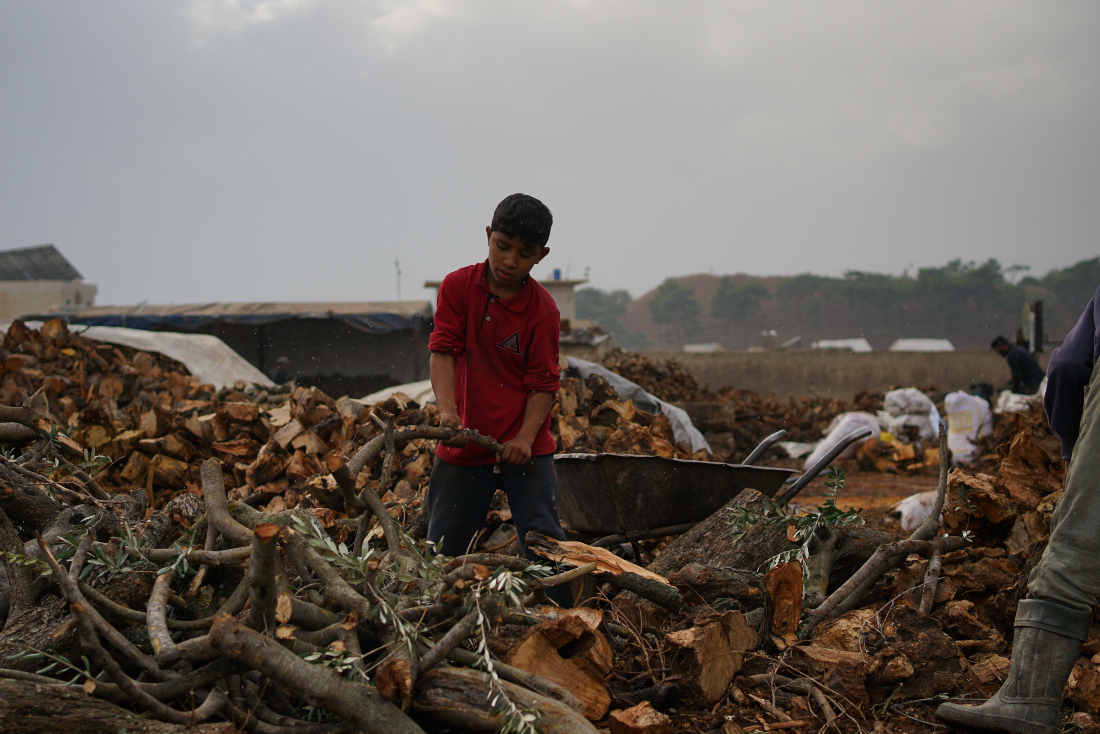DAMASCUS: Syrians displaced by war and living in camps in the northwest of the country are preparing for another difficult winter amid soaring fuel prices, dwindling humanitarian aid and a scarcity of jobs.
Abdul Salam Al-Youssef, 53, who had to leave his home in Al-Tah, south of Idlib, told Arab News: “We have been in random camps for three years, lacking the minimum necessities of life, and our suffering increases at the beginning of each winter.
“We, the heads of families, are responsible for large expenses because the price of all heating methods exceeds $150, and even the prices of heaters are high, and these are all costs that we are unable to bear.”
He added that the tents in which people had been living for the past three years were becoming worn and letting in water.
Khaled Abdel Rahman, also from Al-Tah, tells a similar story.
“I have been displaced for five years … and every year when winter comes, it brings with it worries for us,” he said.
“We used to receive support for heating materials at the beginning of every winter, but every year this support decreases. Until, in the last two years, we started burning nylon garbage or plastic containers. These materials are harmful to health, especially children, and we use these because we do not have the ability to buy heating materials because their price is very expensive for us.”
The average price of a ton of firewood was now about $150, he said.
“We do not have the ability to buy a single kilo of firewood in these bad conditions. Our tents are in very poor condition. We patch and sew them every winter, and with every strong wind we repair them again.”
The amount of humanitarian aid being provided to camps in northwest Syria has been falling steadily since 2021.

Displaced people accounted for almost half of the more than 6 million now living in northwest Syria. (Supplied)
Samir Al-Ahmad, who sells firewood at a local market, told Arab News: “Firewood in previous years was much cheaper than now, but the prices of all heating materials are very expensive.
“I wanted to install a diesel greenhouse, but I did not have the ability to do so, so I installed a wood-burning greenhouse because I can pay for firewood from my work in this market. Firewood is very expensive, with prices ranging from $140 to $210, depending on its type and quality.”
He added that these days, people bought only small amounts of firewood when they could afford it.
The Syria Response Coordinators team said that displaced people accounted for almost half of the more than 6 million now living in northwest Syria. Of those, more than 2 million — including 600,000 women, 888,000 children and 84,000 people with special needs — live in the region’s camps.














